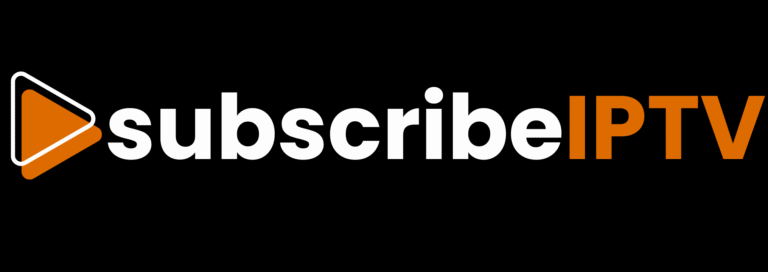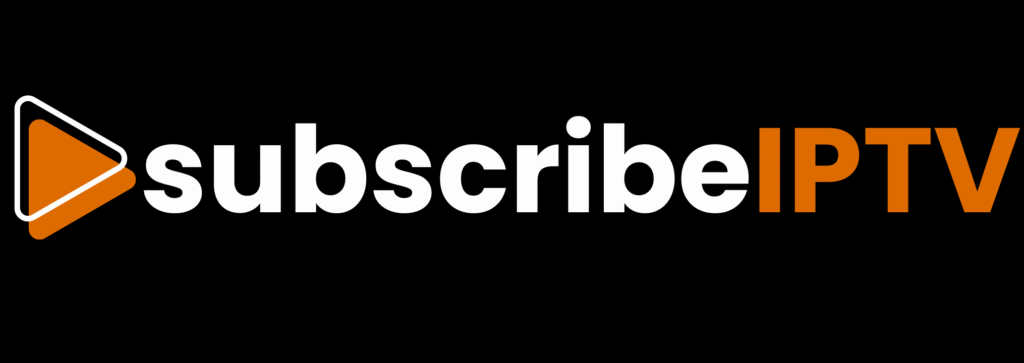The battle for your living room screen is more intense than ever. For decades, the choice was simple: Cable or Satellite. You picked one, signed a lengthy contract, and accepted the ever-increasing monthly bill. But a powerful new contender has completely changed the game: IPTV.
This IPTV vs. Cable showdown is about more than just technology; it’s about value, freedom, and control over what you watch. Are you tired of paying over $150 a month for hundreds of channels you never watch? Frustrated by surprise fees and iron-clad contracts? You’re not alone.
In this definitive IPTV comparison, we will dissect each service—Cable, Satellite, and IPTV—across the metrics that truly matter: cost, content, quality, and convenience. By the end, you’ll have a crystal-clear understanding of which technology is the undisputed champion for the modern viewer.
Deep Dive: Understanding the Core Technology
Before we compare them, it’s essential to understand how each one delivers television to your screen. Their fundamental differences are what create the massive gaps in price and performance.
What is Traditional Cable TV?
Cable TV is the old guard. It works by sending broadcast signals through a physical network of coaxial and fiber-optic cables buried underground or strung along utility poles. A technician comes to your home, connects the main line to a cable box, and that box unscrambles the signal for your TV.
-
How it works: Physical cable infrastructure.
-
Key characteristic: Reliant on a physical connection to your specific address.
What is Satellite TV?
Satellite TV, popularized by providers like DirecTV and Dish Network, beams its signal down from space. A satellite orbiting the Earth transmits data to a receiving dish installed on your roof or balcony. This dish then sends the signal to a receiver box connected to your TV.
-
How it works: Wireless signal from space to a physical dish.
-
Key characteristic: Vulnerable to weather interference (rain, snow, heavy clouds can disrupt the signal).
What is IPTV (Internet Protocol Television)?
IPTV is the future, delivered today. Instead of using cables or satellite signals, IPTV delivers television content directly over your existing internet connection. It’s the same fundamental technology that powers services like Netflix and YouTube, but applied to live TV channels. You don’t need a special dish or a technician visit—just an internet connection and a compatible device. This is the core of the modern IPTV or satellite debate; one is bound by weather, the other by internet quality.
-
How it works: Streaming video packets over an internet connection.
-
Key characteristic: Incredible flexibility, portability, and content variety.
Key Takeaway: Cable and Satellite are “closed systems” that require specialized hardware and physical infrastructure. IPTV leverages the open and ubiquitous power of the internet, making it inherently more flexible and modern.
The Ultimate IPTV vs. Cable vs. Satellite Comparison
Now for the main event. Let’s put these three technologies head-to-head across the six most important categories for any TV viewer. This is the definitive IPTV comparison you’ve been searching for.
Round 1: Cost & Pricing Structure
This is often the number one reason people start looking for alternatives.
-
Cable: Notoriously Expensive. You start with a “promotional” rate that balloons after 12 months. Expect to pay $80 – $200+ per month after factoring in box rental fees, regional sports fees, broadcast fees, and other hidden charges. Plus, they lock you into 1-2 year contracts with hefty early termination fees.
-
Satellite: Slightly Cheaper, Still Costly. Satellite often has slightly lower base prices than cable, but the same deceptive model applies. Promotional rates expire, and hidden fees are common. Expect a final bill of $70 – $180 per month and a mandatory 2-year contract.
-
IPTV: Transparent and Affordable. This is where IPTV shines. Providers like SubscribeIPTV offer comprehensive packages for a simple, flat monthly fee, typically between $15 – $25 per month. There are no contracts, no hidden fees, and no rental charges for equipment. The value is simply unmatched.
Winner: IPTV, by a landslide.
Round 2: Channel Selection & Content Library
More isn’t always better. Relevant content is what matters.
-
Cable & Satellite: They boast “500+ channels,” but the reality is that most are filler, shopping channels, or foreign language networks you didn’t ask for. Getting premium sports (like NFL Sunday Ticket) or international packages costs a fortune in add-ons.
-
IPTV: Unrivaled Global Content. An IPTV subscription gives you thousands of channels from the USA, UK, Canada, and all over the world in one package. This includes all the premium sports, movie channels, 24/7 shows, and a massive Video-on-Demand (VOD) library of movies and series. It’s everything, all at once.
For sports fans, the IPTV vs. Cable debate ends here. IPTV provides access to every game, from every league, without blackouts—something cable can never offer. You can learn more in our guide to the best IPTV for live sports.
Winner: IPTV, for its sheer breadth and depth of relevant content.
Round 3: Picture Quality & Reliability
How good will the picture look, and will it be there when you need it?
-
Cable: Generally very reliable with excellent HD quality, as it’s a direct physical line. 4K content is still limited and often costs extra.
-
Satellite: Offers great HD and 4K quality, but its Achilles’ heel is reliability. A heavy rainstorm or blizzard can cause signal loss, leaving you with a “Searching for Satellite Signal” message right before a crucial moment in a game.
-
IPTV: Quality is dependent on the provider and your internet speed. A premium provider like SubscribeIPTV uses powerful servers to deliver buffer-free HD and 4K streams. As long as you have a stable internet connection (25+ Mbps is recommended), the quality is pristine and reliability is excellent.
(External Link): You can check the FCC’s definition of broadband speeds to see what’s considered sufficient.
Winner: A tie between Cable and a premium IPTV service. IPTV loses the point on reliability only if the user has very poor internet, while Satellite loses for its weather dependency.
Round 4: Portability & Device Compatibility
Can you watch your TV service outside of your living room?
-
Cable & Satellite: You’re tethered to the receiver box connected to your TV. While some offer basic streaming apps, they are often clunky, limited, and don’t include your full channel lineup.
-
IPTV: Watch Anywhere, on Anything. This is a core strength. Your subscription is tied to your account, not a physical box. You can install an IPTV player app on your Amazon Firestick, Android TV, smartphone, tablet, or computer and watch your full channel list wherever you have an internet connection—in another room, at a friend’s house, or on vacation.
Winner: IPTV, without question.
At a Glance: The Final Scorecard
This table summarizes the entire IPTV vs. Cable and IPTV or Satellite debate.
| Feature | IPTV (e.g., SubscribeIPTV) | Cable TV | Satellite TV |
| Monthly Cost |
(Very Low) |
$ (Very High) |
(High) |
| Contracts | No | Yes (1-2 Years) | Yes (2 Years) |
| Channel Count | Massive (Global) | Large (Mostly Local) | Large (Mostly Local) |
| PPV/Sports Packs | Often Included | Expensive Add-ons | Expensive Add-ons |
| Reliability | Excellent (with good internet) | Excellent | Poor (in bad weather) |
| Portability | Watch Anywhere | Limited to Home | Limited to Home |
| Hardware | Your Own Device (e.g., Firestick) | Required Rented Box | Required Dish & Box |
Who is Each Service Best For?
To be completely fair, each service has a target audience.
-
Cable TV is for: The person who wants a single bill for TV, internet, and phone (a “bundle”), doesn’t mind paying a premium for it, and is not technically inclined.
-
Satellite TV is for: The person living in a rural area with no access to high-speed cable internet but a clear view of the sky.
-
IPTV is for: Everyone else. The cord-cutter, the budget-conscious family, the die-hard sports fan, the ex-pat wanting channels from home, and anyone who values flexibility and content choice over outdated technology.
Introducing a Smarter Solution: SubscribeIPTV
It’s clear from this IPTV comparison that IPTV technology is the superior choice for the vast majority of people. It delivers more for less. However, the quality of your experience depends entirely on the provider you choose.
At SubscribeIPTV, we built our service to be the perfect solution for those leaving cable and satellite behind. We focus on what matters:
-
Rock-Solid Servers: To ensure a buffer-free experience, even during major events.
-
A Curated Channel List: All the US, UK, and Canadian channels you actually want to watch, plus a massive VOD library.
-
Simple, Transparent Pricing: One low monthly fee. No contracts, no surprises.
-
24/7 Customer Support: We’re here to help you get set up and answer any questions.
Frequently Asked Questions (FAQ)
Do I need very fast internet for IPTV to work well?
You need a stable connection more than a super-fast one. For smooth HD streaming, a consistent speed of 25-30 Mbps is perfect. Most standard broadband plans in the USA easily meet this requirement.
Is IPTV more complicated to set up than cable?
No! It’s actually much simpler. There’s no technician visit. You get an M3U link or Xtreme Codes login from your provider, type it into a player app (like IPTV Smarters or TiviMate) on your device, and you’re done. The whole process takes less than 5 minutes.
(Suggestion: Link to your /setup-guides page here)
Can I still get all my local news channels (ABC, CBS, NBC, FOX)?
Yes. A premium IPTV service like ours includes local affiliate channels from major cities across the USA, so you can always stay connected to your local news and network programming.
What is the single biggest advantage IPTV has over Cable and Satellite?
Value. It’s not just about being cheaper. It’s about the incredible amount of content (live channels, international sports, VOD) you get for that low price. The value proposition is simply unbeatable in today’s market.
(External Link): For more on the cord-cutting trend, you can read reports from market analysts like Pew Research Center on the decline of cable TV.
Conclusion: The Choice for a Smarter, Freer TV Experience
The verdict is in. While Cable and Satellite cling to an outdated, expensive, and restrictive model, IPTV has emerged as the clear winner for viewers who demand more. It breaks the chains of long-term contracts, demolishes the frustration of regional blackouts, and opens up a world of global content—all while leaving more money in your pocket each month.
The IPTV vs. Cable debate is over. The future of television isn’t coming; it’s already here, and it’s delivered over the internet.
If you’re ready to experience this superior way of watching TV, the next step is simple. Choose a provider that is reliable, trusted, and offers exceptional value. It’s time to subscribe to IPTV and take back control of your entertainment.
Visit https://subscribeiptv.com/ today to select your plan. Your journey to a better, cheaper, and more flexible TV experience starts now!

